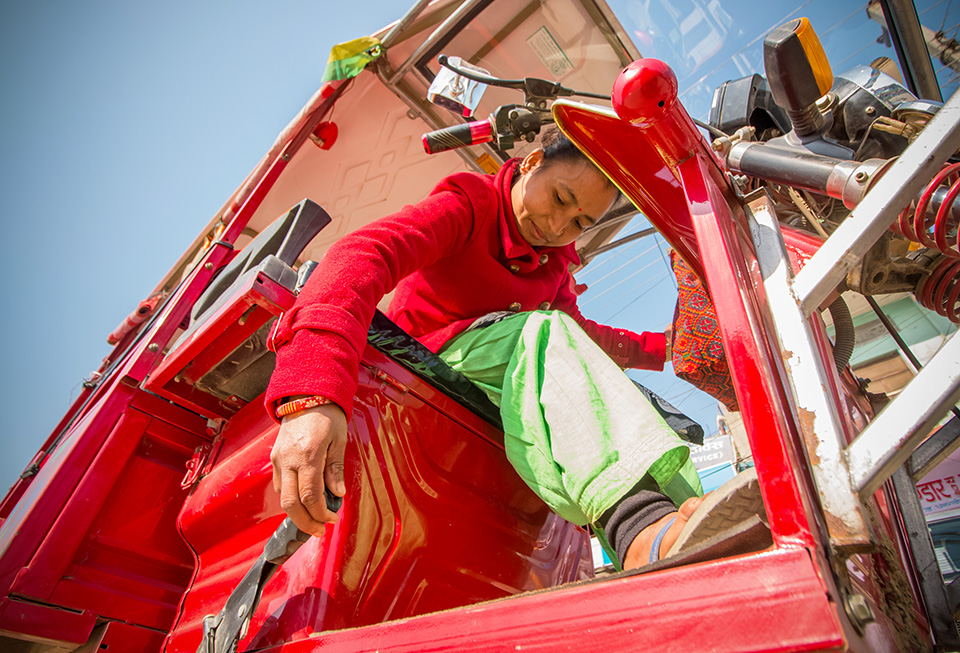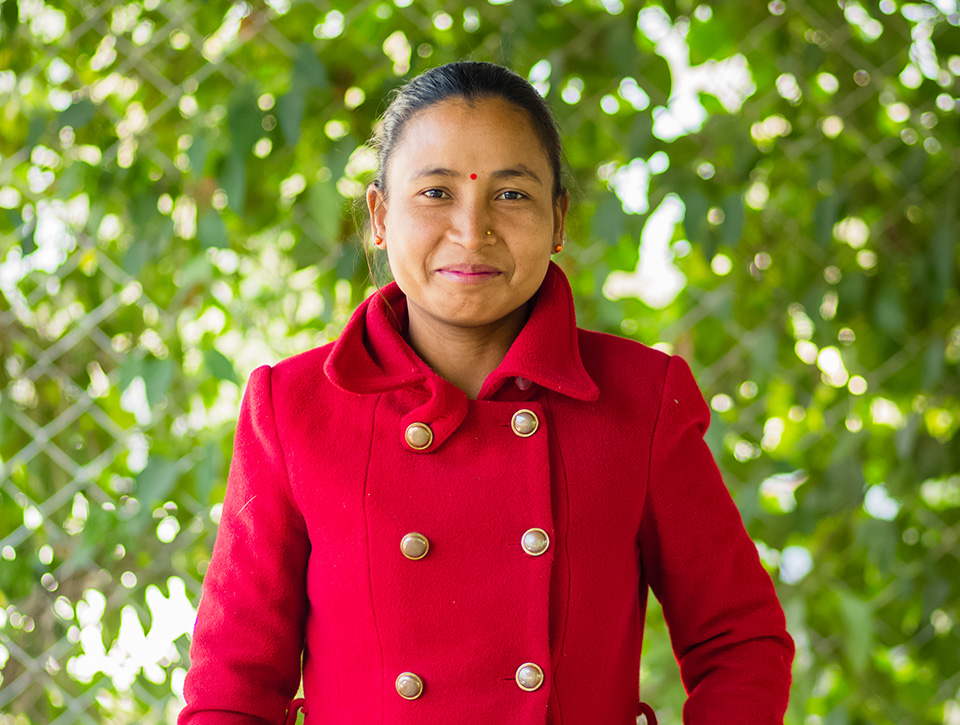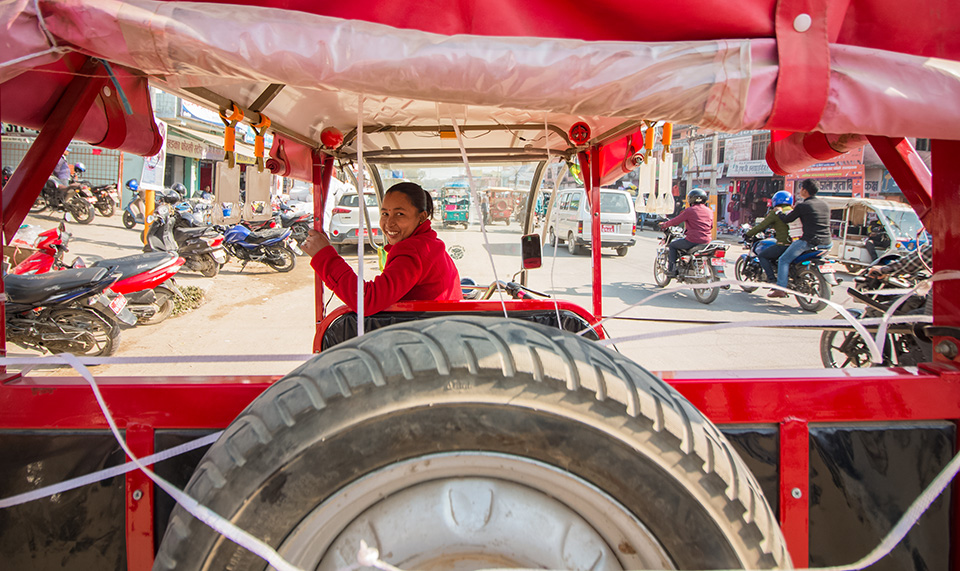Taking the wheels of her destiny on the roads of western Nepal
Date:
Author: Monica Puri

Padma Chaudhary, a 38-year-old mother of two, leaves early in the morning from her home in the village of Phulwari to her e-rickshaw stall almost 20 km away, in Dhangadhi bazaar. Decked in a smart, long red coat that matches her bright red chariot on wheels, she marvels at how much her life has changed in the months since she acquired the vehicle, which has allowed her to work independently.
An e-rickshaw, short for electric rickshaw, is a battery-operated three-wheeler that is a greener alternative to rickshaws that run on fuel. “I never expected there to be initiatives willing to support rural women like us,” says Chaudhary, as she talks about the e-rickshaw she received from Pourakhi Nepal, UN Women’s implementing partner, some seven months ago.

Chaudhary sometimes looks back on the times when it was a constant struggle for her family to make ends meet, and how today everything has changed for the better.
“There’s an immeasurable satisfaction in being financially independent than having to live your life at the mercy of others,” she says. “I am able to comfortably provide for our family’s needs. I feel rather content because this vocation has given me financial freedom.”
Chaudhary’s family had mainly relied on agriculture as their major source of income, which was hardly enough to sustain a family of six, that included her husband, her two kids and her parents-in-law. In 2009, she went to Lebanon hoping to support her family better. She describes her two years there as trying, and not worth the sacrifice of being away from her family.
“I was uneducated, had no skills, not even basic language skills,” she shares. “My wages were also very low, roughly NPR 10,000 (USD 87) per month.” After she returned, Chaudhary and her husband kept themselves busy with farming. But unable to support the family on farming alone, her husband then left for Malaysia.
She still remembers the day when she learned about the e-rickshaw programme, which was offered at a women’s group meeting that she attended regularly. The programme was offered to returnee women migrant workers to support their economic empowerment. Chaudhary received the e-rickshaw training, which she says was a wonderful experience. “Since I’m used to cycling, it only took me a day to learn to drive,” she adds. “The day we received our e-rickshaws was a joyous occasion for the whole village.”
Chaudhary earns a monthly income of about NPR 20,000 (USD 175) by driving the e-rickshaw. “If we could only earn 1,000 rupees each day, the money we make here would be better than what we earn abroad,” says Chaudhary. “My husband is working in Malaysia and earns as much as I do here, which is not worth the trouble of being away from the family.”
Now all Chaudhary wishes is for her husband’s return. He has been away for three years and says he will come home as soon as his contract ends. With their savings, the couple is planning to set up either an eatery or a retail store.
Chaudhary’s earnings from the e-rickshaw have also helped her expand her agricultural produce, as she has used her savings to lease a piece of land. When she is not driving, she takes to the fields. “We can now make up to NPR 30,000 (USD 263) by selling our harvest,” she says.

“Beyond economic independence, the e-rickshaw initiative has helped women like Padma Chaudhary gain respect in the society and change the perception that driving is only for men,” says Chandani Rana, Executive Director of Pourakhi Nepal. “Women like Chaudhary have gained self-confidence and have been able to raise their voices on issues that concern them. As pioneering figures in their communities, these women have inspired their peers and the future generation to follow their lead.”
Chaudhary is motivated by the kind and positive feedback from her family and friends and even her passengers. “Everyone commends my effort and inspires me to continue my venture. Some passengers even tip me extra money as their way of showing support,” she shares. Inspired by her own success, she encourages her children to learn a skill that will help them in the future. Her daughter recently attended a three-month beautician training.